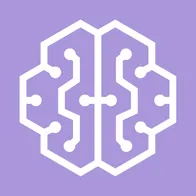Book a Call
Speak to us to learn more about the world of AI and how AI can help small businesses. Find a time that suits you and we'll be in touch.
Read more about us and what we do!

AI Is More Than a Ventriloquist’s Doll: Why Mainstream Media’s Take on ChatGPT Misses the Whole Damn Point
By your trusty tech journalist at scotsphere AI, who still can’t get ChatGPT to write a proper limerick about taxes.
Another day, another headline about generative AI writing poetry, painting pictures, and remixing Drake songs. This time, the BBC is reporting on the UK government’s shiny new agreement with OpenAI to inject artificial intelligence into public services. Think justice, defence, even education—basically the “Big Deal” departments. On paper, it sounds impressive. But there’s one big thing we’re not talking about:
We’re obsessing over the performative magic of AI while sleepwalking past the transformational part.
Generative AI is the ventriloquist’s doll. Agentic AI is the person pulling the strings—and doing the actual work backstage.
The Assistant, Not the Act
Generative AI dazzles. It can write, illustrate, even compose with spooky fluency. But Agentic AI? That’s the software that does things. It takes action. It integrates with other systems. It shows up to work.
Agentic AI is what’s powering things like scotsphere.ai's voice agents—bots that don’t just sound smart, but actively book your appointment, fetch your records, and handle back-office workflows. No puppet show required.
Or, as Dr. Gordon Fletcher from the University of Salford puts it:
“The real challenge isn’t making AI sound intelligent—it’s making it useful at scale, and doing that transparently.”
Imagine deploying ChatGPT to answer phone calls for the NHS. Sounds futuristic, right? Now imagine a voice agent that collects a patient’s symptoms, books an appointment directly in the system, and follows up with confirmation—all without human intervention. That’s not sci-fi. That’s now.
Media: Stop Reporting on the Puppet Show
The BBC coverage of the OpenAI partnership fixates on the familiar tropes: productivity, innovation, vague political handshakes. It even squeezes in the usual chorus of digital privacy campaigners sounding the alarm over “treasure troves of data.”
Now, yes—ethical questions deserve airtime. But where’s the discussion on how AI is evolving into full-blown agents that can manage workflows, triage support tickets, or coordinate logistics across teams? That’s the bit that will actually change your day job—not whether a chatbot can draft your resignation letter in pirate speak.
“We keep thinking of AI as a digital intern who takes notes,” says Amira Patel, product lead at a UK automation startup.
“But the future’s closer to a full-blown operations manager. It makes decisions. It executes. That’s what mainstream coverage keeps glossing over.”
A Statistic That Should Wake You Up
According to McKinsey, 70% of all generative AI productivity gains will come from task automation, not content creation. That’s right—seven out of ten pounds saved by AI will be from things like scheduling, form-filling, and record-keeping. Not writing sonnets. Not generating cat memes.
Let that sink in next time you hear another story about ChatGPT writing a school essay.
Why This Matters Now
The UK government is desperate for economic growth (see: flatlining GDP at 0.1%). Big Tech’s coming in with flashy promises, but the public sector needs more than demos. It needs agents. Systems that replace repetitive workflows. Tools that work even when nobody’s looking. And most importantly, AI that integrates securely and locally, without handing the keys to the kingdom to Silicon Valley.
And that’s where companies like scotsphere AI come in.
The Call to (Agentic) Action
Generative AI is the ventriloquist’s doll—good for stage presence and clever lines.
Agentic AI is the act you didn’t see coming—running the show from behind the curtain.
So if you're in government, healthcare, or small business—don’t get distracted by the puppet show. The real opportunity isn’t in content. It’s in capability.
Talk to scotsphere.ai. We build agentic systems that integrate with your tools, automate your tasks, and show real ROI—without the hype or hallucinations.
Because the real revolution isn’t about what AI says. It’s about what it does.

Navigation
Contact Us
© 2025 scotsphere.ai All Rights Reserved
